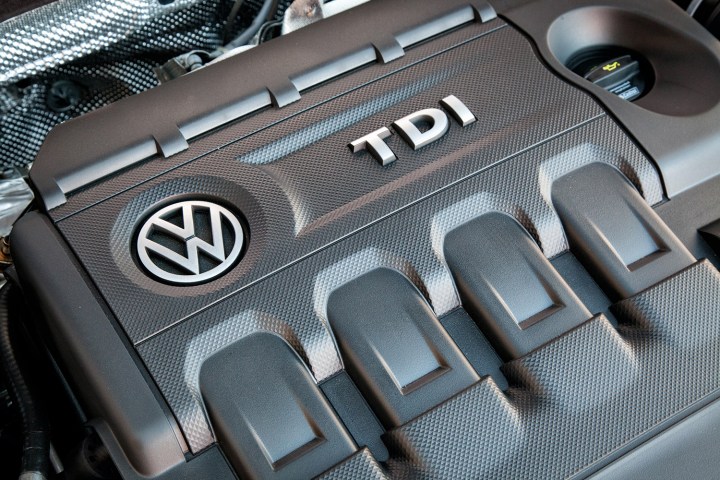
Instead, Volkswagen is putting an unprecedented focus on electrification. It’s currently developing a modular platform named MEB designed specifically to underpin battery-powered models, and it boldly promises to put no less than a million electric cars on the road by the year 2025. Christian Senger, the head of the brand’s e-mobility division, told Digital Trends that Volkswagen ultimately wants to become the leader in electrification.
Giving up on diesel technology significantly complicates Volkswagen’s long-rumored return to the commercial vehicle segment in the U.S. The Amarok pickup truck and the Caddy van can get by with only a gasoline-burning engine, but anything bigger needs a turbodiesel under the hood to be competitive. Volkswagen is experimenting with an electric version of the full-size Crafter van, so the commercial vehicle offensive could come with a charging cord — assuming it’s still in the pipelines.
The decision to stop selling diesels in the U.S. also applies to the company’s Audi brand — with one exception. The diesel-powered A3 is dead for good, and the U.S.-spec version of the A4 TDI was canceled well before it hit showrooms due to a lack of demand, but the compression ignition engine still makes sense in some segments of the market.
“Once we hopefully get past everything, I see an opportunity for potentially, probably to offer it on one model, and that model would probably be the Q7 SUV,” said Audi of America president Scott Keogh in an interview with Reuters. He didn’t reveal when we might see a Q7 with a turbodiesel engine under the hood in a U.S. showroom.
Volkswagen’s rivals have been quick to capitalize on the widely publicized diesel affair. Notably, Chevrolet plans on offering a turbodiesel engine in at least four of its models in a bid to lure former TDI owners into showrooms, and Mazda’s new CX-5 will offer a diesel engine when it goes on sale. Americans famously shun diesel-powered cars, but the Bowtie pointed out that makes the U.S. one of the few growth markets for diesels in the world.
Editors' Recommendations
- Don’t wear Vision Pro while driving, U.S. transport chief says
- Volkswagen is launching its own self-driving car testing program in the U.S.
- What I’ve learned after a year of driving the best-selling plug-in hybrid in the U.S.
- Jeep is launching its first two electric SUVs in the U.S. in 2024
- We tested the self-driving Mercedes tech so advanced, it’s not allowed in the U.S.




